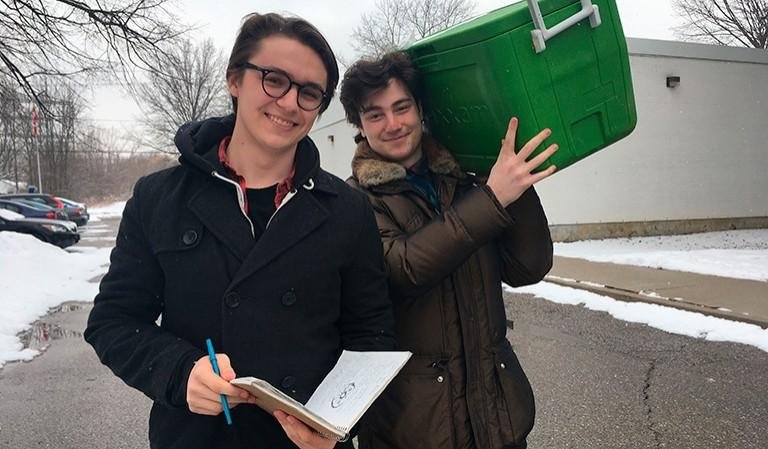Ryerson University students collecting samples. Photo by Julie Mutis/Concordia University News Release
Nov. 4 (UPI) -- Findings from an investigative project unveiled Monday showed that some places in Canada had drinking water with levels of lead just as high or higher than Flint, Mich., had four years ago.
The investigative project, called Tainted Water, involved nine universities, 10 media groups and more than 120 journalists collaborating over a year to investigate lead levels in Canada's water supply, a news release said.
Water tests were gathered with the help of volunteers from 260 older homes across Canada and found that 39 percent showed levels of lead exceeding Canada's current health guideline of five ppb.
"Journalism students and reporters pooled their research in order to delve more deeply into the national scope of this issue," said Patti Sonntag, director of Concordia's Institute for Investigative Journalism, which facilitated the project, in the release.
"And residents across the country volunteered to carry out tests of their drinking water for lead," she continued. "What we found is that Montreal, Gatineau, Saskatoon Regina, Moose Jaw, and Prince Rupert had lead levels comparable or higher than those of Flint, Michigan, during its 2015 lead crisis."
Journalists also collected thousands of undisclosed test results from 11 cities and found that about a third of tests exceeded federal guidelines. Some of the high levels were recorded in schools and daycares.
Children are especially vulnerable to lead poisoning from prolonged exposure possibly affecting mental and physical development.
"To date, the investigation has found that regulations across Canada fail to confront lead as aggressively as federal regulations in the United States," Sonntag said.
A report published in Global News and a local newspaper in mid-October found that Quebec was using a testing method that flushed tap water for up to five minutes, which was abandoned by U.S. cities 30 years ago as it under-represented lead levels. In response, Quebec Premier Francois Legault said that the province would change its practices to test the water properly.
After more articles on the issue emerged, Montreal announced a $557 million action plan to rid its drinking water of lead.
"It's definitely encouraging to see your work have such a large and immediate impact," said Ian Down, an undergraduate student in Concordia's Department of Journalism, who participated in the Tainted Water project.















